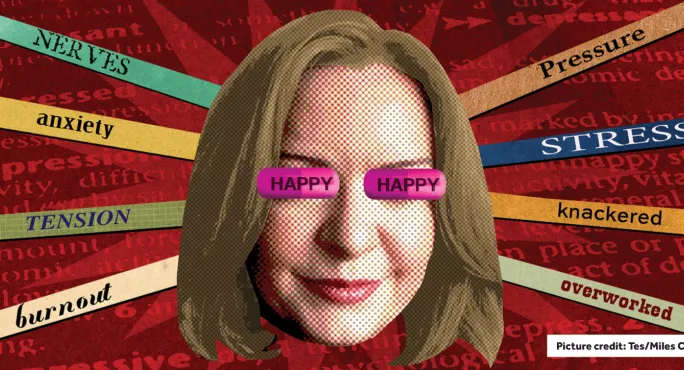We English teachers are a funny lot. Sending text messages absent of abbreviation, bristling over misplaced apostrophes on public signage; we command a spectrum of emotions about specific vocabulary, from light irritation to deep pedantry.
Nothing gives me word rage more than the sound of British people with English as their first language liberally bunging Americanisms into conversation, as though they’ve just stepped off the ranch. Follow the phrase “a bunch of…” with anything that isn’t related to flowers or one of your five a day, and you’ll hear my low growl of disapproval.
Language evolves. Professional jargon seeps into everyday conversation, too. In recent years the destigmatisation of mental ill health has popularised previously little-used vocabulary.
When I was a kid, anyone with a mental-health issue was described as being “bad with their nerves”. It was unsaid but clearly communicated that we weren’t supposed to ask questions.
Now, talking about how we feel has become far more accepted. But it concerns me that some of the related terminology - “burnout”, “anxiety”, “stress” - is so commonly used that it can confuse or diminish our ability to recognise the actual problem.
“I’m stressed” can tie a nice ribbon on deep sadness or overdramatise a busy week. “A stressful day at work” can translate to anything from “I desperately hate my job” to “I’m mildly nervous about a meeting”.
For the past year, I’d been telling myself I was stressed. I’d even written a column insisting that I definitely wasn’t depressed. No, no. Not me. Looking back, that was a weird thing for a genuinely Happy Larry to do.
Without making the conscious decision to do so, I stopped wanting to get together with pals, making excuses to avoid social situations. I was okay at home with my family and coped at work, teaching or speaking in front of audiences at events, but began to struggle more and more, exhausted and unhappy, for no particular reason.
On the rare times when I had no choice but to go out, I ended up drinking a skinful to mask my fear and behaved atrociously, spiralling further into darkness in the aftermath.
Eventually, I went to the doctor and she listened to my embarrassed excuses for feeling like I did. After an MOT to check there was no physical cause for this personality change, she referred me to a therapist, wrote a prescription for happy pills and reassured me that my depression was just biology.
Nearly six months on, and I’m starting to come out the other side. I’ve looked at what needs to change and changed it. But I spent a long time believing that this debilitating “stress” was what everyone else was feeling. That this unfamiliar unhappiness and mystifying loss of confidence was just overworked knackeredness. It wasn’t.
The word “stress” can distort, confuse. It’s better to work out how we really feel and address it before “stress” becomes the new “bad with her nerves”.
Sarah Simons works in colleges in the East Midlands and is the director of UKFEchat. She tweets @MrsSarahSimons




